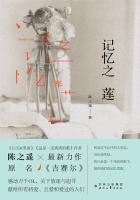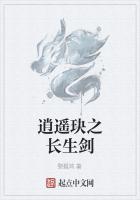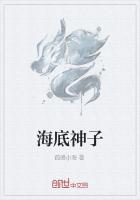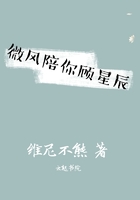I began the next day with another dive into the Roman bath, and then started for Highgate. I was not dispirited now. I was not afraid of the shabby coat, and had no yearnings after gallant greys. My whole manner of thinking of our late misfortune was changed. What I had to do, was, to show my aunt that her past goodness to me had not been thrown away on an insensible, ungrateful object. What I had to do, was, to turn the painful discipline of my younger days to account, by going to work with a resolute and steady heart. What I had to do, was, to take my woodman's axe in my hand, and clear my own way through the forest of difficulty, by cutting down the trees until I came to Dora. And I went on at a mighty rate, as if it could be done by walking.
When I found myself on the familiar Highgate road, pursuing such a different errand from that old one of pleasure, with which it was associated, it seemed as if a complete change had come on my whole life. But that did not discourage me. With the new life, came new purpose, new intention. Great was the labour; priceless the reward. Dora was the reward, and Dora must be won.
I got into such a transport, that I felt quite sorry my coat was not a little shabby already. I wanted to be cutting at those trees in the forest of difficulty, under circumstances that should prove my strength. I had a good mind to ask an old man, in wire spectacles, who was breaking stones upon the road, to lend me his hammer for a little while, and let me begin to beat a path to Dora out of granite. I stimulated myself into such a heat, and got so out of breath, that I felt as if I had been earning I don't know how much.
In this state, I went into a cottage that I saw was to let, and examined it narrowly,—for I felt it necessary to be practical. It would do for me and Dora admirably: with a little front garden for Jip to run about in, and bark at the tradespeople through the railings, and a capital room upstairs for my aunt. I came out again, hotter and faster than ever, and dashed up to Highgate, at such a rate that I was there an hour too early; and, though I had not been, should have been obliged to stroll about to cool myself, before I was at all presentable.
My first care, after putting myself under this necessary course of preparation, was to find the Doctor's house. It was not in that part of Highgate where Mrs. Steerforth lived, but quite on the opposite side of the little town. When I had made this discovery, I went back, in an attraction I could not resist, to a lane by Mrs. Steerforth's, and looked over the corner of the garden wall. His room was shut up close. The conservatory doors were standing open, and Rosa Dartle was walking, bareheaded, with a quick, impetuous step, up and down a gravel walk on one side of the lawn. She gave me the idea of some fierce thing, that was dragging the length of its chain to and fro upon a beaten track, and wearing its heart out.
I came softly away from my place of observation, and avoiding that part of the neighbourhood, and wishing I had not gone near it, strolled about until it was ten o'clock. The church with the slender spire, that stands on the top of the hill now, was not there then to tell me the time. An old red-brick mansion, used as a school, was in its place; and a fine old house it must have been to go to school at, as I recollect it.
When I approached the Doctor's cottage—a pretty old place, on which he seemed to have expended some money, if I might judge from the embellishments and repairs that had the look of being just completed—I saw him walking in the garden at the side, gaiters and all, as if he had never left off walking since the days of my pupilage. He had his old companions about him, too; for there were plenty of high trees in the neighbourhood, and two or three rooks were on the grass, looking after him, as if they had been written to about him by the Canterbury rooks, and were observing him closely in consequence.
Knowing the utter hopelessness of attracting his attention from that distance, I made bold to open the gate, and walk after him, so as to meet him when he should turn round. When he did, and came towards me, he looked at me thoughtfully for a few moments, evidently without thinking about me at all; and then his benevolent face expressed extraordinary pleasure, and he took me by both hands.
‘Why, my dear Copperfield,’said the Doctor,‘you are a man! How do you do? I am delighted to see you. My dear Copperfield, how very much you have improved! You are quite—yes—dear me!’
I hoped he was well, and Mrs. Strong too.
‘Oh dear, yes!’said the Doctor;‘Annie's quite well, and she'll be delighted to see you. You were always her favourite. She said so, last night, when I showed her your letter. And—yes, to be sure—you recollect Mr. Jack Maldon, Copperfield?’
‘Perfectly, sir.’
‘Of course,’said the Doctor.‘To be sure. He's pretty well, too.’
‘Has he come home, sir?’I inquired.
‘From India?’said the Doctor.‘Yes. Mr. Jack Maldon couldn't bear the climate, my dear. Mrs. Markleham—you have not forgotten Mrs. Markleham?’
Forgotten the Old Soldier! And in that short time!
‘Mrs. Markleham,’said the Doctor,‘was quite vexed about him, poor thing; so we have got him at home again; and we have bought him a little Patent place, which agrees with him much better.’I knew enough of Mr. Jack Maldon to suspect from this account that it was a place where there was not much to do, and which was pretty well paid. The Doctor, walking up and down with his hand on my shoulder, and his kind face turned encouragingly to mine, went on:
‘Now, my dear Copperfield, in reference to this proposal of yours. It's very gratifying and agreeable to me, I am sure; but don't you think you could do better? You achieved distinction, you know, when you were with us. You are qualified for many good things. You have laid a foundation that any edifice may be raised upon; and is it not a pity that you should devote the spring-time of your life to such a poor pursuit as I can offer?’
I became very glowing again, and, expressing myself in a rhapsodical style, I am afraid, urged my request strongly; reminding the Doctor that I had already a profession.
‘Well, well,’said the Doctor,‘that's true. Certainly, your having a profession, and being actually engaged in studying it, makes a difference. But, my good young friend, what's seventy pounds a year?’
‘It doubles our income, Doctor Strong,’said I.
‘Dear me!’replied the Doctor.‘To think of that! Not that I mean to say it's rigidly limited to seventy pounds a-year, because I have always contemplated ****** any young friend I might thus employ, a present too. Undoubtedly,’said the Doctor, still walking me up and down with his hand on my shoulder.‘I have always taken an annual present into account.’
‘My dear tutor,’said I (now, really, without any nonsense),‘to whom I owe more obligations already than I ever can acknowledge—’
‘No, no,’interposed the Doctor.‘Pardon me!’
‘If you will take such time as I have, and that is my mornings and evenings, and can think it worth seventy pounds a year, you will do me such a service as I cannot express.’
‘Dear me!’said the Doctor, innocently.‘To think that so little should go for so much! Dear, dear! And when you can do better, you will? On your word, now?’said the Doctor,—which he had always made a very grave appeal to the honour of us boys.
‘On my word, sir!’I returned, answering in our old school manner.
‘Then be it so,’said the Doctor, clapping me on the shoulder, and still keeping his hand there, as we still walked up and down.
‘And I shall be twenty times happier, sir,’said I, with a little—I hope innocent—flattery,‘if my employment is to be on the Dictionary.’
The Doctor stopped, smilingly clapped me on the shoulder again, and exclaimed, with a triumph most delightful to behold, as if I had penetrated to the profoundest depths of mortal sagacity,‘My dear young friend, you have hit it. It IS the Dictionary!’
How could it be anything else! His pockets were as full of it as his head. It was sticking out of him in all directions. He told me that since his retirement from scholastic life, he had been advancing with it wonderfully; and that nothing could suit him better than the proposed arrangements for morning and evening work, as it was his custom to walk about in the daytime with his considering cap on. His papers were in a little confusion, in consequence of Mr. Jack Maldon having lately proffered his occasional services as an amanuensis, and not being accustomed to that occupation; but we should soon put right what was amiss, and go on swimmingly. Afterwards, when we were fairly at our work, I found Mr. Jack Maldon's efforts more troublesome to me than I had expected, as he had not confined himself to ****** numerous mistakes, but had sketched so many soldiers, and ladies' heads, over the Doctor's manuscript, that I often became involved in labyrinths of obscurity.
The Doctor was quite happy in the prospect of our going to work together on that wonderful performance, and we settled to begin next morning at seven o'clock. We were to work two hours every morning, and two or three hours every night, except on Saturdays, when I was to rest. On Sundays, of course, I was to rest also, and I considered these very easy terms.
Our plans being thus arranged to our mutual satisfaction, the Doctor took me into the house to present me to Mrs. Strong, whom we found in the Doctor's new study, dusting his books,—a ******* which he never permitted anybody else to take with those sacred favourites.
They had postponed their breakfast on my account, and we sat down to table together. We had not been seated long, when I saw an approaching arrival in Mrs. Strong's face, before I heard any sound of it. A gentleman on horseback came to the gate, and leading his horse into the little court, with the bridle over his arm, as if he were quite at home, tied him to a ring in the empty coach-house wall, and came into the breakfast parlour, whip in hand. It was Mr. Jack Maldon; and Mr. Jack Maldon was not at all improved by India, I thought. I was in a state of ferocious virtue, however, as to young men who were not cutting down trees in the forest of difficulty; and my impression must be received with due allowance.
‘Mr. Jack!’said the Doctor.‘Copperfield!’
Mr. Jack Maldon shook hands with me; but not very warmly, I believed; and with an air of languid patronage, at which I secretly took great umbrage. But his languor altogether was quite a wonderful sight; except when he addressed himself to his cousin Annie.‘Have you breakfasted this morning, Mr. Jack?’said the Doctor.
‘I hardly ever take breakfast, sir,’he replied, with his head thrown back in an easy-chair.‘I find it bores me.’
‘Is there any news today?’inquired the Doctor.
‘Nothing at all, sir,’replied Mr. Maldon.‘There's an account about the people being hungry and discontented down in the North, but they are always being hungry and discontented somewhere.’
The Doctor looked grave, and said, as though he wished to change the subject,‘Then there's no news at all; and no news, they say, is good news.’
‘There's a long statement in the papers, sir, about a murder,’observed Mr. Maldon.‘But somebody is always being murdered, and I didn't read it.’
A display of indifference to all the actions and passions of mankind was not supposed to be such a distinguished quality at that time, I think, as I have observed it to be considered since. I have known it very fashionable indeed. I have seen it displayed with such success, that I have encountered some fine ladies and gentlemen who might as well have been born caterpillars. Perhaps it impressed me the more then, because it was new to me, but it certainly did not tend to exalt my opinion of, or to strengthen my confidence in, Mr. Jack Maldon.
‘I came out to inquire whether Annie would like to go to the opera tonight,’said Mr. Maldon, turning to her.‘It's the last good night there will be, this season; and there's a singer there, whom she really ought to hear. She is perfectly exquisite. Besides which, she is so charmingly ugly,’relapsing into languor.
The Doctor, ever pleased with what was likely to please his young wife, turned to her and said:
‘You must go, Annie. You must go.’
‘I would rather not,’she said to the Doctor.‘I prefer to remain at home. I would much rather remain at home.’
Without looking at her cousin, she then addressed me, and asked me about Agnes, and whether she should see her, and whether she was not likely to come that day; and was so much disturbed, that I wondered how even the Doctor, buttering his toast, could be blind to what was so obvious.
But he saw nothing. He told her, good-naturedly, that she was young and ought to be amused and entertained, and must not allow herself to be made dull by a dull old fellow. Moreover, he said, he wanted to hear her sing all the new singer's songs to him; and how could she do that well, unless she went? So the Doctor persisted in ****** the engagement for her, and Mr. Jack Maldon was to come back to dinner. This concluded, he went to his Patent place, I suppose; but at all events went away on his horse, looking very idle.
I was curious to find out next morning, whether she had been. She had not, but had sent into London to put her cousin off; and had gone out in the afternoon to see Agnes, and had prevailed upon the Doctor to go with her; and they had walked home by the fields, the Doctor told me, the evening being delightful. I wondered then, whether she would have gone if Agnes had not been in town, and whether Agnes had some good influence over her too!
She did not look very happy, I thought; but it was a good face, or a very false one. I often glanced at it, for she sat in the window all the time we were at work; and made our breakfast, which we took by snatches as we were employed. When I left, at nine o'clock, she was kneeling on the ground at the Doctor's feet, putting on his shoes and gaiters for him. There was a softened shade upon her face, thrown from some green leaves overhanging the open window of the low room; and I thought all the way to Doctors' Commons, of the night when I had seen it looking at him as he read.
I was pretty busy now; up at five in the morning, and home at nine or ten at night. But I had infinite satisfaction in being so closely engaged, and never walked slowly on any account, and felt enthusiastically that the more I tired myself, the more I was doing to deserve Dora. I had not revealed myself in my altered character to Dora yet, because she was coming to see Miss Mills in a few days, and I deferred all I had to tell her until then; merely informing her in my letters (all our communications were secretly forwarded through Miss Mills), that I had much to tell her. In the meantime, I put myself on a short allowance of bear's grease, wholly abandoned scented soap and lavender water, and sold off three waistcoats at a prodigious sacrifice, as being too luxurious for my stern career.
Not satisfied with all these proceedings, but burning with impatience to do something more, I went to see Traddles, now lodging up behind the parapet of a house in Castle Street, Holborn. Mr. ****, who had been with me to Highgate twice already, and had resumed his companionship with the Doctor, I took with me.
I took Mr. **** with me, because, acutely sensitive to my aunt's reverses, and sincerely believing that no galley-slave or convict worked as I did, he had begun to fret and worry himself out of spirits and appetite, as having nothing useful to do. In this condition, he felt more incapable of finishing the Memorial than ever; and the harder he worked at it, the oftener that unlucky head of King Charles the First got into it. Seriously apprehending that his malady would increase, unless we put some innocent deception upon him and caused him to believe that he was useful, or unless we could put him in the way of being really useful (which would be better), I made up my mind to try if Traddles could help us. Before we went, I wrote Traddles a full statement of all that had happened, and Traddles wrote me back a capital answer, expressive of his sympathy and friendship.
We found him hard at work with his inkstand and papers, refreshed by the sight of the flower-pot stand and the little round table in a corner of the small apartment. He received us cordially, and made friends with Mr. **** in a moment. Mr. **** professed an absolute certainty of having seen him before, and we both said,‘Very likely.’
The first subject on which I had to consult Traddles was this,—I had heard that many men distinguished in various pursuits had begun life by reporting the debates in Parliament. Traddles having mentioned newspapers to me, as one of his hopes, I had put the two things together, and told Traddles in my letter that I wished to know how I could qualify myself for this pursuit. Traddles now informed me, as the result of his inquiries, that the mere mechanical acquisition necessary, except in rare cases, for thorough excellence in it, that is to say, a perfect and entire command of the mystery of short-hand writing and reading, was about equal in difficulty to the mastery of six languages; and that it might perhaps be attained, by dint of perseverance, in the course of a few years. Traddles reasonably supposed that this would settle the business; but I, only feeling that here indeed were a few tall trees to be hewn down, immediately resolved to work my way on to Dora through this thicket, axe in hand.
‘I am very much obliged to you, my dear Traddles!’said I.‘I'll begin tomorrow.’
Traddles looked astonished, as he well might; but he had no notion as yet of my rapturous condition.
‘I'll buy a book,’said I,‘with a good scheme of this art in it; I'll work at it at the Commons, where I haven't half enough to do; I'll take down the speeches in our court for practice—Traddles, my dear fellow, I'll master it!’
‘Dear me,’said Traddles, opening his eyes,‘I had no idea you were such a determined character, Copperfield!’
I don't know how he should have had, for it was new enough to me. I passed that off, and brought Mr. **** on the carpet.
‘You see,’said Mr. ****, wistfully,‘if I could exert myself, Mr. Traddles—if I could beat a drum—or blow anything!’
Poor fellow! I have little doubt he would have preferred such an employment in his heart to all others. Traddles, who would not have smiled for the world, replied composedly:
‘But you are a very good penman, sir. You told me so, Copperfield?’
‘Excellent!’said I. And indeed he was. He wrote with extraordinary neatness.
‘Don't you think,’said Traddles,‘you could copy writings, sir, if I got them for you?’
Mr. **** looked doubtfully at me.‘Eh, Trotwood?’
I shook my head. Mr. **** shook his, and sighed.‘Tell him about the Memorial,’said Mr. ****.
I explained to Traddles that there was a difficulty in keeping King Charles the First out of Mr. ****'s manuscripts; Mr. **** in the meanwhile looking very deferentially and seriously at Traddles, and sucking his thumb.
‘But these writings, you know, that I speak of, are already drawn up and finished,’said Traddles after a little consideration.‘Mr. **** has nothing to do with them. Wouldn't that make a difference, Copperfield? At all events, wouldn't it be well to try?’
This gave us new hope. Traddles and I laying our heads together apart, while Mr. **** anxiously watched us from his chair, we concocted a scheme in virtue of which we got him to work next day, with triumphant success.
On a table by the window in Buckingham Street, we set out the work Traddles procured for him—which was to make, I forget how many copies of a legal document about some right of way—and on another table we spread the last unfinished original of the great Memorial. Our instructions to Mr. **** were that he should copy exactly what he had before him, without the least departure from the original; and that when he felt it necessary to make the slightest allusion to King Charles the First, he should fly to the Memorial. We exhorted him to be resolute in this, and left my aunt to observe him. My aunt reported to us, afterwards, that, at first, he was like a man playing the kettle-drums, and constantly divided his attentions between the two; but that, finding this confuse and fatigue him, and having his copy there, plainly before his eyes, he soon sat at it in an orderly business-like manner, and postponed the Memorial to a more convenient time. In a word, although we took great care that he should have no more to do than was good for him, and although he did not begin with the beginning of a week, he earned by the following Saturday night ten shillings and nine-pence; and never, while I live, shall I forget his going about to all the shops in the neighbourhood to change this treasure into sixpences, or his bringing them to my aunt arranged in the form of a heart upon a waiter, with tears of joy and pride in his eyes. He was like one under the propitious influence of a charm, from the moment of his being usefully employed; and if there were a happy man in the world, that Saturday night, it was the grateful creature who thought my aunt the most wonderful woman in existence, and me the most wonderful young man.
‘No starving now, Trotwood,’said Mr. ****, shaking hands with me in a corner.‘I'll provide for her, Sir!’and he flourished his ten fingers in the air, as if they were ten banks.
I hardly know which was the better pleased, Traddles or I.‘It really,’said Traddles, suddenly, taking a letter out of his pocket, and giving it to me,‘put Mr. Micawber quite out of my head!’
The letter (Mr. Micawber never missed any possible opportunity of writing a letter) was addressed to me,‘By the kindness of T. Traddles, Esquire, of the Inner Temple.’It ran thus:—
‘MY DEAR COPPERFIELD,
‘You may possibly not be unprepared to receive the intimation that something has turned up. I may have mentioned to you on a former occasion that I was in expectation of such an event.
‘I am about to establish myself in one of the provincial towns of our favoured island (where the society may be described as a happy admixture of the agricultural and the clerical), in immediate connexion with one of the learned professions. Mrs. Micawber and our offspring will accompany me. Our ashes, at a future period, will probably be found commingled in the cemetery attached to a venerable pile, for which the spot to which I refer has acquired a reputation, shall I say from China to Peru?
‘In bidding adieu to the modern Babylon, where we have undergone many vicissitudes, I trust not ignobly, Mrs. Micawber and myself cannot disguise from our minds that we part, it may be for years and it may be for ever, with an individual linked by strong associations to the altar of our domestic life. If, on the eve of such a departure, you will accompany our mutual friend, Mr. Thomas Traddles, to our present abode, and there reciprocate the wishes natural to the occasion, you will confer a Boon
‘On
‘One
‘Who
‘Is
‘Ever yours,
‘WILKINS MICAWBER’
I was glad to find that Mr. Micawber had got rid of his dust and ashes, and that something really had turned up at last. Learning from Traddles that the invitation referred to the evening then wearing away, I expressed my readiness to do honour to it; and we went off together to the lodging which Mr. Micawber occupied as Mr. Mortimer, and which was situated near the top of the Gray's Inn Road.
The resources of this lodging were so limited, that we found the twins, now some eight or nine years old, reposing in a turn-up bedstead in the family sitting-room, where Mr. Micawber had prepared, in a wash-hand-stand jug, what he called‘a Brew’of the agreeable beverage for which he was famous. I had the pleasure, on this occasion, of renewing the acquaintance of Master Micawber, whom I found a promising boy of about twelve or thirteen, very subject to that restlessness of limb which is not an unfrequent phenomenon in youths of his age. I also became once more known to his sister, Miss Micawber, in whom, as Mr. Micawber told us,‘her mother renewed her youth, like the Phoenix’.
‘My dear Copperfield,’said Mr. Micawber,‘yourself and Mr. Traddles find us on the brink of migration, and will excuse any little discomforts incidental to that position.’
Glancing round as I made a suitable reply, I observed that the family effects were already packed, and that the amount of luggage was by no means overwhelming. I congratulated Mrs. Micawber on the approaching change.
‘My dear Mr. Copperfield,’said Mrs. Micawber,‘of your friendly interest in all our affairs, I am well assured. My family may consider it banishment, if they please; but I am a wife and mother, and I never will desert Mr. Micawber.’
Traddles, appealed to by Mrs. Micawber's eye, feelingly acquiesced.
‘That,’said Mrs. Micawber,‘that, at least, is my view, my dear Mr. Copperfield and Mr. Traddles, of the obligation which I took upon myself when I repeated the irrevocable words,“I, Emma, take thee, Wilkins.”I read the service over with a flat-candle on the previous night, and the conclusion I derived from it was, that I never could desert Mr. Micawber. And,’said Mrs. Micawber,‘though it is possible I may be mistaken in my view of the ceremony, I never will!’
‘My dear,’said Mr. Micawber, a little impatiently,‘I am not conscious that you are expected to do anything of the sort.’
‘I am aware, my dear Mr. Copperfield,’pursued Mrs. Micawber,‘that I am now about to cast my lot among strangers; and I am also aware that the various members of my family, to whom Mr. Micawber has written in the most gentlemanly terms, announcing that fact, have not taken the least notice of Mr. Micawber's communication. Indeed I may be superstitious,’said Mrs. Micawber,‘but it appears to me that Mr. Micawber is destined never to receive any answers whatever to the great majority of the communications he writes. I may augur, from the silence of my family, that they object to the resolution I have taken; but I should not allow myself to be swerved from the path of duty, Mr. Copperfield, even by my papa and mama, were they still living.’
I expressed my opinion that this was going in the right direction.‘It may be a sacrifice,’said Mrs. Micawber,‘to immure one's-self in a Cathedral town; but surely, Mr. Copperfield, if it is a sacrifice in me, it is much more a sacrifice in a man of Mr. Micawber's abilities.’
‘Oh! You are going to a Cathedral town?’said I.
Mr. Micawber, who had been helping us all, out of the wash-hand-stand jug, replied:
‘To Canterbury. In fact, my dear Copperfield, I have entered into arrangements, by virtue of which I stand pledged and contracted to our friend Heep, to assist and serve him in the capacity of—and to be—his confidential clerk.’
I stared at Mr. Micawber, who greatly enjoyed my surprise.
‘I am bound to state to you,’he said, with an official air,‘that the business habits, and the prudent suggestions, of Mrs. Micawber, have in a great measure conduced to this result. The gauntlet, to which Mrs. Micawber referred upon a former occasion, being thrown down in the form of an advertisement, was taken up by my friend Heep, and led to a mutual recognition. Of my friend Heep,’said Mr. Micawber,‘who is a man of remarkable shrewdness, I desire to speak with all possible respect. My friend Heep has not fixed the positive remuneration at too high a figure, but he has made a great deal, in the way of extrication from the pressure of pecuniary difficulties, contingent on the value of my services; and on the value of those services I pin my faith. Such address and intelligence as I chance to possess,’said Mr. Micawber, boastfully disparaging himself, with the old genteel air,‘will be devoted to my friend Heep's service. I have already some acquaintance with the law—as a defendant on civil process—and I shall immediately apply myself to the Commentaries of one of the most eminent and remarkable of our English jurists. I believe it is unnecessary to add that I allude to Mr. justice Blackstone.’
These observations, and indeed the greater part of the observations made that evening, were interrupted by Mrs. Micawber's discovering that Master Micawber was sitting on his boots, or holding his head on with both arms as if he felt it loose, or accidentally kicking Traddles under the table, or shuffling his feet over one another, or producing them at distances from himself apparently outrageous to nature, or lying sideways with his hair among the wine-glasses, or developing his restlessness of limb in some other form incompatible with the general interests of society; and by Master Micawber's receiving those discoveries in a resentful spirit. I sat all the while, amazed by Mr. Micawber's disclosure, and wondering what it meant; until Mrs. Micawber resumed the thread of the discourse, and claimed my attention.
‘What I particularly request Mr. Micawber to be careful of, is,’said Mrs. Micawber,‘that he does not, my dear Mr. Copperfield, in applying himself to this subordinate branch of the law, place it out of his power to rise, ultimately, to the top of the tree. I am convinced that Mr. Micawber, giving his mind to a profession so adapted to his fertile resources, and his flow of language, must distinguish himself. Now, for example, Mr. Traddles,’said Mrs. Micawber, assuming a profound air,‘a judge, or even say a Chancellor. Does an individual place himself beyond the pale of those preferments by entering on such an office as Mr. Micawber has accepted?’
‘My dear,’observed Mr. Micawber—but glancing inquisitively at Traddles, too;‘we have time enough before us, for the consideration of those questions.’
‘Micawber,’she returned,‘no! Your mistake in life is, that you do not look forward far enough. You are bound, in justice to your family, if not to yourself, to take in at a comprehensive glance the extremest point in the horizon to which your abilities may lead you.’
Mr. Micawber coughed, and drank his punch with an air of exceeding satisfaction—still glancing at Traddles, as if he desired to have his opinion.
‘Why, the plain state of the case, Mrs. Micawber,’said Traddles, mildly breaking the truth to her.‘I mean the real prosaic fact, you know—’
‘Just so,’said Mrs. Micawber,‘my dear Mr. Traddles, I wish to be as prosaic and literal as possible on a subject of so much importance.’
‘—Is,’said Traddles,‘that this branch of the law, even if Mr. Micawber were a regular solicitor—’
‘Exactly so,’returned Mrs. Micawber. (‘Wilkins, you are squinting, and will not be able to get your eyes back.’)
‘—Has nothing,’pursued Traddles,‘to do with that. Only a barrister is eligible for such preferments; and Mr. Micawber could not be a barrister, without being entered at an inn of court as a student, for five years.’
‘Do I follow you?’said Mrs. Micawber, with her most affable air of business.‘Do I understand, my dear Mr. Traddles, that, at the expiration of that period, Mr. Micawber would be eligible as a Judge or Chancellor?’
‘He would be ELIGIBLE,’returned Traddles, with a strong emphasis on that word.
‘Thank you,’said Mrs. Micawber.‘That is quite sufficient. If such is the case, and Mr. Micawber forfeits no privilege by entering on these duties, my anxiety is set at rest. I speak,’said Mrs. Micawber,‘as a female, necessarily; but I have always been of opinion that Mr. Micawber possesses what I have heard my papa call, when I lived at home, the judicial mind; and I hope Mr. Micawber is now entering on a field where that mind will develop itself, and take a commanding station.’
I quite believe that Mr. Micawber saw himself, in his judicial mind's eye, on the woolsack. He passed his hand complacently over his bald head, and said with ostentatious resignation:
‘My dear, we will not anticipate the decrees of fortune. If I am reserved to wear a wig, I am at least prepared, externally,’in allusion to his baldness,‘for that distinction. I do not,’said Mr. Micawber,‘regret my hair, and I may have been deprived of it for a specific purpose. I cannot say. It is my intention, my dear Copperfield, to educate my son for the Church; I will not deny that I should be happy, on his account, to attain to eminence.’
‘For the Church?’said I, still pondering, between whiles, on Uriah Heep.
‘Yes,’said Mr. Micawber.‘He has a remarkable head-voice, and will commence as a chorister. Our residence at Canterbury, and our local connexion, will, no doubt, enable him to take advantage of any vacancy that may arise in the Cathedral corps.’
On looking at Master Micawber again, I saw that he had a certain expression of face, as if his voice were behind his eyebrows; where it presently appeared to be, on his singing us (as an alternative between that and bed)‘The Wood-Pecker tapping’. After many compliments on this performance, we fell into some general conversation; and as I was too full of my desperate intentions to keep my altered circumstances to myself, I made them known to Mr. and Mrs. Micawber. I cannot express how extremely delighted they both were, by the idea of my aunt's being in difficulties; and how comfortable and friendly it made them.
When we were nearly come to the last round of the punch, I addressed myself to Traddles, and reminded him that we must not separate, without wishing our friends health, happiness, and success in their new career. I begged Mr. Micawber to fill us bumpers, and proposed the toast in due form: shaking hands with him across the table, and kissing Mrs. Micawber, to commemorate that eventful occasion. Traddles imitated me in the first particular, but did not consider himself a sufficiently old friend to venture on the second.
‘My dear Copperfield,’said Mr. Micawber, rising with one of his thumbs in each of his waistcoat pockets,‘the companion of my youth: if I may be allowed the expression—and my esteemed friend Traddles: if I may be permitted to call him so—will allow me, on the part of Mrs. Micawber, myself, and our offspring, to thank them in the warmest and most uncompromising terms for their good wishes. It may be expected that on the eve of a migration which will consign us to a perfectly new existence,’Mr. Micawber spoke as if they were going five hundred thousand miles,‘I should offer a few valedictory remarks to two such friends as I see before me. But all that I have to say in this way, I have said. Whatever station in society I may attain, through the medium of the learned profession of which I am about to become an unworthy member, I shall endeavour not to disgrace, and Mrs. Micawber will be safe to adorn. Under the temporary pressure of pecuniary liabilities, contracted with a view to their immediate liquidation, but remaining unliquidated through a combination of circumstances, I have been under the necessity of assuming a garb from which my natural instincts recoil—I allude to spectacles—and possessing myself of a cognomen, to which I can establish no legitimate pretensions. All I have to say on that score is, that the cloud has passed from the dreary scene, and the God of Day is once more high upon the mountain tops. On Monday next, on the arrival of the four o'clock afternoon coach at Canterbury, my foot will be on my native heath—my name, Micawber!’
Mr. Micawber resumed his seat on the close of these remarks, and drank two glasses of punch in grave succession. He then said with much solemnity:
‘One thing more I have to do, before this separation is complete, and that is to perform an act of justice. My friend Mr. Thomas Traddles has, on two several occasions,“put his name”, if I may use a common expression, to bills of exchange for my accommodation. On the first occasion Mr. Thomas Traddles was left—let me say, in short, in the lurch. The fulfilment of the second has not yet arrived. The amount of the first obligation,’here Mr. Micawber carefully referred to papers,‘was, I believe, twenty-three, four, nine and a half, of the second, according to my entry of that transaction, eighteen, six, two. These sums, united, make a total, if my calculation is correct, amounting to forty-one, ten, eleven and a half. My friend Copperfield will perhaps do me the favour to check that total?’
I did so and found it correct.
‘To leave this metropolis,’said Mr. Micawber,‘and my friend Mr. Thomas Traddles, without acquitting myself of the pecuniary part of this obligation, would weigh upon my mind to an insupportable extent. I have, therefore, prepared for my friend Mr. Thomas Traddles, and I now hold in my hand, a document, which accomplishes the desired object. I beg to hand to my friend Mr. Thomas Traddles my I.O.U. for forty-one, ten, eleven and a half, and I am happy to recover my moral dignity, and to know that I can once more walk erect before my fellow man!’
With this introduction (which greatly affected him), Mr. Micawber placed his I.O.U. in the hands of Traddles, and said he wished him well in every relation of life. I am persuaded, not only that this was quite the same to Mr. Micawber as paying the money, but that Traddles himself hardly knew the difference until he had had time to think about it. Mr. Micawber walked so erect before his fellow man, on the strength of this virtuous action, that his chest looked half as broad again when he lighted us downstairs. We parted with great heartiness on both sides; and when I had seen Traddles to his own door, and was going home alone, I thought, among the other odd and contradictory things I mused upon, that, slippery as Mr. Micawber was, I was probably indebted to some compassionate recollection he retained of me as his boy-lodger, for never having been asked by him for money. I certainly should not have had the moral courage to refuse it; and I have no doubt he knew that (to his credit be it written), quite as well as I did.















